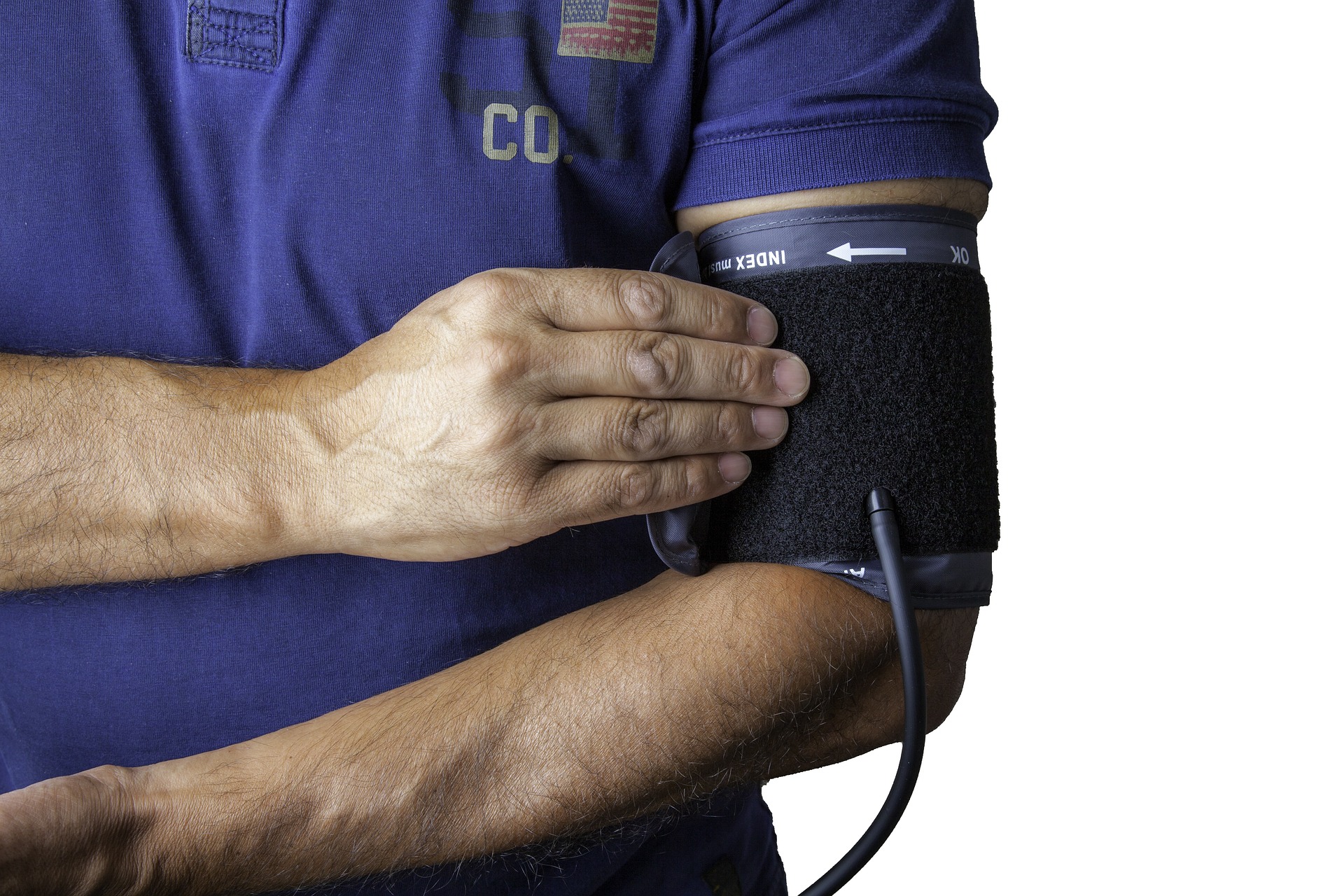
Men’s Health Month aims to raise awareness It’s not only a reminder to care for your physical health, but also an opportunity to prioritize your mental and emotional wellness. Too frequently, men ignore or postpone taking action on health issues until they worsen, which is why this month promotes proactive, preventative treatment.
During Men’s Health Month, it’s critical to prioritize regular health exams, a healthy diet, and physical activity. The recognition month also encourages open dialogue about mental health, reducing stress and anxiety. Focusing on total well-being allows men to take tiny, doable steps toward a healthy lifestyle.
Whether you’re seeking Men’s Health Month recommendations to help you improve your daily routine or want to learn more about men’s health issues, now is the time to start making changes. Prioritize self-care and take action now to ensure a healthier tomorrow.
Tip 1: Schedule a health checkup and prioritize your well-being.
One of the most crucial Men’s Health Month advice is to schedule regular health checkups. Regular screenings and doctor visits are critical in detecting illnesses early and keeping you healthy in the long run. Men’s Health Awareness Month suggestions emphasize the need for preventative treatment, which can significantly lower the chance of developing chronic diseases.
Some important checks to schedule are cholesterol and blood pressure screenings to monitor heart health and a prostate exam for males over 40. Routine exams can help detect the early stages of diabetes, cancer, and other disorders. Staying on top of these health measures can dramatically enhance your chances of preventing more serious difficulties in the future.
It’s easy to postpone appointments, but Men’s Health Month is a timely reminder to act. Make your health a priority by scheduling an appointment with your healthcare practitioner today. These easy steps can assist in maintaining long-term health and peace of mind.

Tip 2: Adopt a Heart-Healthy Diet and Fuel Your Health
Adopting a heart-healthy diet is a major focus of Men’s Health Month tips. Nutrition is critical to sustaining heart health, which is necessary for general well-being. You can reduce your risk of heart disease and other chronic illnesses by including nutrient-dense foods.
Focus on lean proteins like chicken, turkey, and fish to maintain a healthy heart. Whole grains, such as brown rice and oats, as well as fruits and vegetables, include critical vitamins and minerals that improve cardiovascular health. These foods are high in fiber and antioxidants, which can help reduce cholesterol and improve heart function.
Try cutting back on processed foods and sodium consumption. Excess salt can raise blood pressure and put additional strain on the heart. Choose fresh ingredients prepare meals wherever possible, and use herbs and spices to add taste without adding sodium.
Making small, long-term dietary changes can help people improve the condition of their heart during Men’s Health Month and beyond.
Tip 3: Get Active: Move for Better Health.
One of the most crucial Men’s Health Month advice is maintaining physical activity. Regular exercise is essential for overall well-being, promoting cardiovascular health, developing strength, and improving mental clarity. Physical activity can help reduce the risk of chronic diseases such as heart disease, diabetes, and some malignancies.
Consider adding workouts that address strength training, cardiovascular fitness, and flexibility to improve men’s health. Weightlifting and handstand workouts increase muscle, but running, swimming, and cycling improve heart health and endurance. Don’t forget to stretch—yoga or easy stretches can improve flexibility, lower the chance of injury, and relieve stress.
For people with hectic schedules, incorporating movement into their daily routine is critical. Take the stairs instead of the elevator, walk or cycle to work, or do a quick workout during lunch breaks. Even modest periods of physical activity, such as a brisk stroll or a quick bodyweight practice, can have a significant impact over time.
Staying active not only strengthens the body, but it also boosts mood and reduces stress, making it an ideal aim for Men’s Health Month and beyond.

Tip 4: Prioritize Mental Health: Essential for Well-Being.
An essential Men’s Health Month suggestion is to prioritize mental health alongside physical wellness. Men’s mental health is frequently disregarded, yet controlling stress, anxiety, and emotional health is essential for a good existence. In today’s fast-paced world, stress can build up, resulting in burnout, depression, or even physical health issues. That’s why it’s critical to take proactive measures to promote mental health.
Simple activities like mindfulness and meditation can help men manage stress and remain present. Taking 5-10 minutes per day to meditate or focus on breathing exercises might improve mental clarity and alleviate anxiety. Journaling is another effective method for processing thoughts and feelings. For individuals dealing with more serious issues, speaking with a therapist or counselor is a wise and beneficial move. It is critical to overcome the shame associated with males seeking mental health services—asking for help is a show of strength, not weakness.
Open discussions about mental health, self-care, and treatment can eliminate stigma and inspire more men to seek help. Taking care of your mind is equally important as taking care of your body, especially during Men’s Health Month.
Tip 5: Stay Hydrated: A Key to Men’s Health.
One of the most important men’s health ideas for Men’s Health Month is to stay hydrated. Hydration is essential for maintaining energy levels, improving physical performance, and promoting overall health. Dehydration can cause weariness, headaches, and even more serious conditions such as heat stroke, particularly during sports or outdoor activities.
To stay hydrated, drink at least 8 glasses of water every day. During Men’s Health Month, as summer approaches, you may require extra water if you exercise or spend time outdoors. Always have a water bottle with you, especially during physical activity. Adding fruits such as lemon or cucumber can improve the flavor and encourage more frequent water consumption.
If you’re doing a lot of exercise, electrolyte-rich drinks might help replenish lost minerals. Staying hydrated is a simple but effective preventive health advice for men—it keeps you active and healthy throughout the day. Remember the importance of hydration while you follow the other Men’s Health Month tips!
Tip 6: Quit Smoking and Limit Alcohol: Important Men’s Health Month Tips
During Men’s Health Month, one of the most important steps you can take for your health is to stop smoking and restrict your alcohol use. Both smoking and excessive alcohol intake can cause major health concerns such as heart disease, liver damage, and cancer. Quitting smoking and reducing alcohol use benefits both your physical and emotional well-being.
To begin, set small, manageable goals. Reducing the number of cigarettes you smoke per day or designating alcohol-free days during the week can help make the process less intimidating. Replace smoking and drinking with healthier habits such as exercising or participating in hobbies that keep you busy. Seeking professional assistance, whether through counseling, nicotine replacement therapies, or support groups, can greatly improve your odds of success.
Remember, stopping smoking and reducing alcohol consumption are essential men’s health guidelines for long-term health. As you adopt these lifestyle adjustments, you will feel healthier, more energetic, and more prepared to appreciate life’s experiences. Men’s Health Month is the ideal moment to embark on your road to a healthy you.

Tip 7: Get Enough Sleep: Essential for Men’s Health Month.
Getting adequate quality sleep is critical to your overall health, especially during Men’s Health Month. Sleep is crucial for healing, cognitive function, and immune system health. Unfortunately, many men underestimate the value of sleep, which can result in exhaustion, stress, and even long-term health problems such as heart disease or diabetes.
To enhance your sleep hygiene, begin by creating a consistent sleep pattern. Going to bed and waking up at the same time regulate your internal clock. Reduce your screen time before bed, as blue light from phones, tablets, and televisions might interfere with your ability to fall asleep.
Putting to sleep is one of the easiest men’s health ideas that can have a significant impact. Aim for 7-9 hours of sleep per night, and you’ll notice an increase in your energy, mood, and general well-being. Men’s Health Month is an ideal time to focus on obtaining the rest your body requires to thrive.
Tip 8: Stress Management: Key Tips for Men’s Health Month
Managing stress is essential for both mental and physical health, especially during Men’s Health Month. Chronic stress can cause major health problems, including high blood pressure, heart disease, and mental health concerns. Simple stress management practices can greatly improve your general well-being.
Begin with breathing techniques such as deep breathing or the 4-7-8 to help calm your mind and body. Time management is also important; prioritizing things and breaking them down into smaller chunks can help to alleviate overwhelming sensations. It is critical to schedule time for soothing hobbies, such as reading, gardening, or playing a musical instrument. Outdoor activities such as hiking or cycling improve mood through physical activity and exposure to nature.
Stress alleviation is an important aspect of men’s health recommendations, and concentrating on it during Men’s Health Month will help you achieve long-term health. Try adopting these tactics into your everyday routine to help you manage stress and live a better, more balanced lifestyle. Take control of your stress, and you will notice a difference in both your mind and body.
Tip 9: Improve Connections: A Key to Mental Health.
Developing and maintaining strong social relationships is crucial for men’s mental health, particularly during Men’s Health Month. Research indicates that having supportive connections can dramatically reduce stress, raise self-esteem, and improve general well-being. Despite this, males frequently experience societal pressure to put first work or repress emotions, which can harm their mental health. Spending quality time with friends and family will help to strengthen your relationships. Social connections, whether they involve sharing a meal, engaging in a cherished hobby, or simply having a meaningful chat, provide emotional support and a sense of community. Make an effort to communicate with loved ones regularly, and don’t be afraid to express your emotions.
Healthy interactions help to reduce loneliness and anxiety. They provide a safe environment in which men can openly share their issues, ask questions regarding men’s health, and receive advice or encouragement. By focusing on men’s health awareness month ideas like this, you may improve both your physical and mental health.
Men’s Health Month advocates proactive health measures, so now is a great opportunity to prioritize and nurture your relationships for a better, happier life.

Tip 10: Educate Yourself and Others: The Key to Empowering Men’s Health
During Men’s Health Month, it is critical to keep aware of prevalent health issues affecting men. Understanding the facts about heart disease, prostate cancer, or mental health issues can help you make proactive efforts to improve your health. You may better control your health by educating yourself about topics such as frequent health exams, exercise routines, and healthy eating practices.
Sharing what you learn is as vital. Encourage open discussions with friends, family, and members of your community about Men’s Health Awareness Month tips. Conversations about health should never be taboo, and sharing information helps to reduce the stigma surrounding men’s health. You can begin by asking questions about men’s health and providing basic advice such as staying hydrated, eating well, and managing stress.
For a more powerful approach, consider participating in or promoting initiatives from the Men’s Health Month toolbox. Helping to raise awareness can inspire others to take charge of their health. Staying informed and sharing resources can help you make a significant difference in the lives of those around you throughout Men’s Health Month and beyond.
Conclusion: Take Charge of Your Health. This Men’s Health Month
Following these Men’s Health Month suggestions is essential for living a healthier lifestyle and dealing with the unique issues that men confront. You may improve your health by having frequent exams, being active, prioritizing mental health, and making smart nutritional choices. Remember that even simple adjustments, such as stress management, stopping smoking, and getting adequate sleep, can have a long-term influence on your health.
This Men’s Health Education Month is an excellent opportunity to reflect on your present routines and make required changes. Whether it’s participating in the Men’s Health Month toolkit or starting a new gym routine, every effort helps to lead a healthier, happier life.
Call To Action: We invite you to leave your own men’s health recommendations or personal experiences in the comments section below. What tactics have worked for you? Let’s create a friendly community and encourage each other to prioritize our health in June and beyond!
Optional sections: Supporting your men’s health journey.
Resources: Helpful Tools for Men’s Health
There are many resources available to help you on your quest for better health. Consider contacting men’s health organizations such as the Men’s Health Network for advice on testing and preventive measures. Fitness applications such as MyFitnessPal and Fit Body can help you measure your progress and keep your routines on track. Meal planning applications such as Mealime and Lose It! offer simple solutions to modify your diet and provide nutrition guidance.
Personal Stories: Motivating Men’s Health Success
Men everywhere are taking control of their health, and their tales can inspire us all.

Leave a Reply